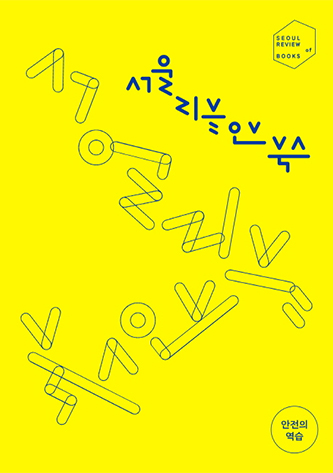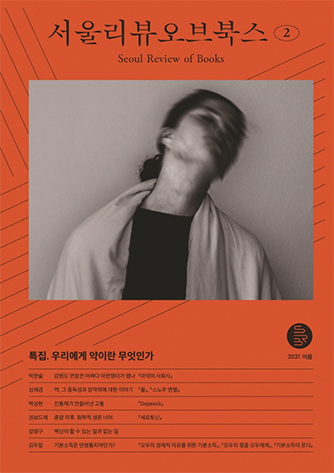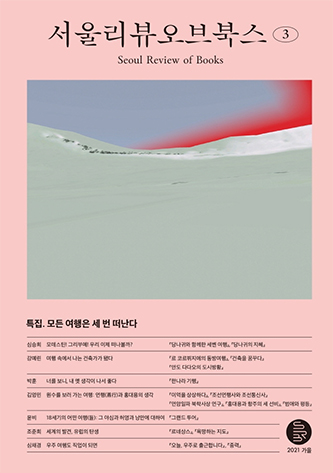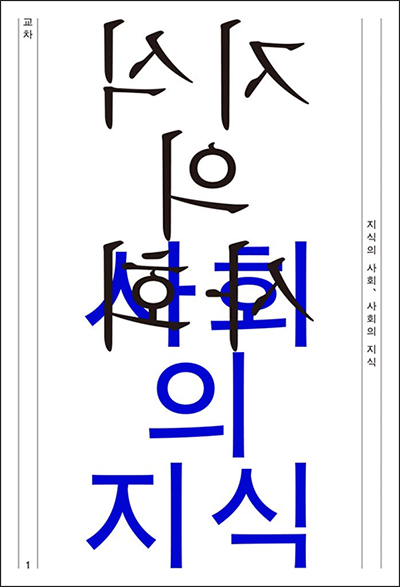|
Publishing Industry
Reviews, Review Journals, and the New Review Culture
2021.12.06
More than 80,000 books are published each year. It means that about 200 books are released in the market every day. Some become bestsellers, and some vanish from the shelves in a few days. People that are "sincere" about reading books lose their way in the piles of new books, trying to figure out which book is good to read. Some people wait for the book column in a newspaper, some listen to book introductions on TV or radio, and some nod their head to the fancy wordplay of book-tubers on YouTube. However, as there is no appropriate or trustable guide, many readers feel as if they are trapped in Daedalus' Maze. Besides, there are voices arguing that there's actually no book to read, for there's no water to drink in a flood.
Recently in Korea, a small seed of hope has sprung up, that the new review culture will arrive, centered around a number of review journals.
Cool Reviews Become News: Seoul Review of Books
Books come to life with their own intrinsic value. Finding that value is up to the readers with sharp eyes, but readers lost in countless books need a small helping hand. Here, one of the helping hands is "review." The public has become familiar with reviews. The number of lectures and books on writing has increased gradually compared to not so long ago, and now there are review-writing classes and books, too. As books are for the readers, reviews written by keen readers are valuable as well. Reviews for readers, by readers, and for readers play a significant role in developing the book ecosystem.
Vol. 1-3, Seoul Review of Books
In fact, the New York Review of Books was a hot potato since its charter issue. The 100,000 copies sold out, and it was praised by The New Yorker, "Truly the best premiere issue among all others in history," and by Esquire, "The best literary magazine written in English." Magazine London Review of Books, more famous for its eco-bags in Korea, is also a seasoned magazine. It has been beloved by European intellectuals, touching various topics from literature, history, philosophy, art, politics, science, and technology.
A Review Journal Crossing the Boundaries: Gyocha
It seems like it was only a few days ago that we talked about the end of magazines, but now, the magazine market is almost like the "contentions of a hundred schools of thought," to exaggerate. While the golden age of independent magazines has come, another review journal was born. It is Gyocha, issued by publisher Itta last October. It seems that Gyocha decided to stick with one genre – academic books. The table of contents in its first issue makes it clear. Let alone classics such as Discourse on Inequality written by Jean-Jacques Rousseau, and For the Mourning of Mourning (Greenbee Books) by Jin Tae-Won, research professor at Sungkonghoe University, the journal covered books that were not even translated yet, such as Le monde des salons. Sociabilité et mondanité à Paris au XVIIIe siècle (Antoine Lilti, Fayard, 2005), Gender, Health, and Healing, 1250-1550 (Sara Ritchey, Sharon Strocchia ed., De Gruyter, 2020), and Reassembling the Social: An Introduction to Actor-Network Theory (Bruno Latour, Oxford University Press, 2005).
Premiere issue of Gyocha
The will to focus on academic books can be clearly shown in the premiere issue of Gyocha. The topic of its first issue was "Society of knowledge, knowledge of society," which unravels profound ideas "about knowledge, society, and the relationship between knowledge and society." It's different from its length compared to the reviews of new books which are about 10 manuscript papers long. Most reviews in the first issue of Gyocha range from as little as 80 manuscript pages to as much as 120 pages long. Longer reviews do not guarantee their quality, but they certainly distinguish themselves from other reviews, which can only include brief summaries and short comments.
For the New Review Culture to Arrive
The launch of the Seoul Review of Books and Gyocha is indeed welcoming. However, it is too early to expect these magazines to take Korea's review culture to the next level. It's not about them lacking quality. It's just that the publishing market is undergoing an unprecedented slump – some say that it's the first time after the big bang, and it's for no one to know how much review journals that question the value and meaning of books can advance in the market. The fact that the past movements in the publishing and media industries to launch a review journal have all come to fail is stark proof of it.
Written by Jang Dong-Seok (Head of Department of Cultural Projects at Bookcity Culture Foundation, Publication Critic)
Jang Dong-Seok (Head of Department of Cultural Projects at Bookcity Culture Foundation, Publication Critic) #Review#Review Journal#Seoul Review of Books#Gyocha |
Pre Megazine
-

New Tarot Made With Korean Colors and Patterns!
VOL.69
2024.04 -

Please Look After Mom by Shin Kyung-sook
VOL.69
2024.04 -

Paper Play – A Great Way for Emotional Development, Concentration, and Creativity!
VOL.68
2024.03 -

Submit Us Your Reviews of Korean Books!
VOL.68
2024.03 -

A Miraculous Workout Routine for a Healthier Body!
VOL.67
2024.02 -

The Hottest Place in Korea, Right Here, Right Now!
VOL.66
2024.01 -

Kim Jiyoung, Born 1982 by Cho Nam-Joo
VOL.66
2024.01 -

Concerning My Daughter by Kim Hye-jin
VOL.65
2023.12 -

Bake Delicious Bread that’s Just Right for Your Taste
VOL.65
2023.12 -

Craft Your Own Special Miniature Furniture
VOL.64
2023.11 -

Take Beautiful Palace Tours With a Book
VOL.63
2023.10 -

A Guide to Beautiful Korean Handwriting
VOL.62
2023.09 -

An Offbeat Trip to Jeju Island
VOL.61
2023.08 -

Prepare for Disasters with a Single Book
VOL.60
2023.07 -

The Hen Who Dreamed She Could Fly by Hwang Sun-mi
VOL.60
2023.07 -

Feel the Street Vibes with Watercolor Painting
VOL.59
2023.06 -

Bone Soup by Kim Young-tak
VOL.59
2023.06 -

Eat Healthier and Tastier – Korean Vegan Food
VOL.58
2023.05 -

Almond by Won-pyung Sohn
VOL.58
2023.05 -

Learn About and Have Greater Fun Drinking Korean Alcohol!
VOL.57
2023.04 -

Knitting YouTuber Daeri Kim’s “Easy Modern Daily Knit”
VOL.56
2023.03 -

A New Section for Readers’ Reviews!
VOL.55
2023.02











